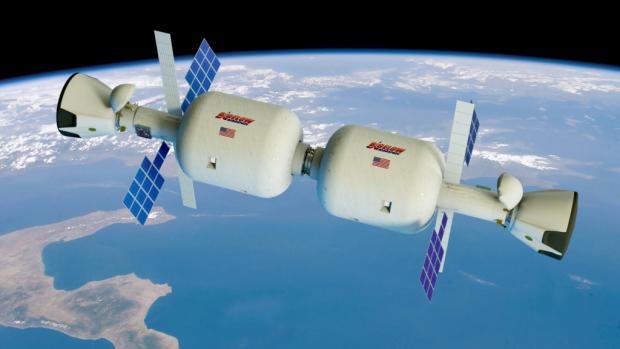
Breaking News
 RFK JR, HHS, ALIGN WITH PARENTAL CONSENT
RFK JR, HHS, ALIGN WITH PARENTAL CONSENT
 "Blackouts Coming!" Glenn Beck & Trump Admin Issue DIRE Warning… It's Already Begun!
"Blackouts Coming!" Glenn Beck & Trump Admin Issue DIRE Warning… It's Already Begun!
 Paypal Seeks Approval to Launch Paypal Bank as Lending, Deposits, and Capital Control Tighten
Paypal Seeks Approval to Launch Paypal Bank as Lending, Deposits, and Capital Control Tighten
 Saylor Buys Nearly $1B Worth of Bitcoin, Then It Plunges 4%
Saylor Buys Nearly $1B Worth of Bitcoin, Then It Plunges 4%
Top Tech News
 This tiny dev board is packed with features for ambitious makers
This tiny dev board is packed with features for ambitious makers
 Scientists Discover Gel to Regrow Tooth Enamel
Scientists Discover Gel to Regrow Tooth Enamel
 Vitamin C and Dandelion Root Killing Cancer Cells -- as Former CDC Director Calls for COVID-19...
Vitamin C and Dandelion Root Killing Cancer Cells -- as Former CDC Director Calls for COVID-19...
 Galactic Brain: US firm plans space-based data centers, power grid to challenge China
Galactic Brain: US firm plans space-based data centers, power grid to challenge China
 A microbial cleanup for glyphosate just earned a patent. Here's why that matters
A microbial cleanup for glyphosate just earned a patent. Here's why that matters
 Japan Breaks Internet Speed Record with 5 Million Times Faster Data Transfer
Japan Breaks Internet Speed Record with 5 Million Times Faster Data Transfer
 Advanced Propulsion Resources Part 1 of 2
Advanced Propulsion Resources Part 1 of 2
 PulsarFusion a forward-thinking UK aerospace company, is pushing the boundaries of space travel...
PulsarFusion a forward-thinking UK aerospace company, is pushing the boundaries of space travel...
 Dinky little laser box throws big-screen entertainment from inches away
Dinky little laser box throws big-screen entertainment from inches away
 'World's first' sodium-ion flashlight shines bright even at -40 ºF
'World's first' sodium-ion flashlight shines bright even at -40 ºF
Ace Rocketeers Swear They'll Put Inflatable Space Stations in Orbit, and Soon

The company hitched its first ride to the high frontier with SpaceX last Friday. And today it announced a partnership with celestial transportation company United Launch Alliance to develop and launch habitable, inflatable, full-on space stations starting in 2020.
The move represents new business for ULA, and a strategic shift. The company has recently come under congressional fire for using Russian-made engines in the Atlas V rockets that'll eventually take the Bigelow B330 habitat to orbit. And Elon Musk's SpaceX, which can get stuff to space for many millions of dollars less, recently won an Air Force contract that would have been up ULA's alley (although ULA did not bid). ULA, on the flip side, does have an A+, 100-percent launch success rate, which SpaceX does not. Still, with competitors on the rise, ULA seems to hope that relationships outside the old guard—and cost-cutting measures like a 375-person "reduction in force" they announced on Friday—will help their company stay in the space game.
That game, said founder Robert Bigelow at a press conference Monday afternoon, is changing, moving from governmental dominance to private partnerships like this one. "For the first time, stations and transportation systems will be available to serve as an open resource and not mainly the purview of nations," he said. "NASA is evolving from owning everything to becoming a commercial customer and a tenant," he said.
Bigelow imagines expandable habitats like the B330, which can be linked together, will become scientific research facilities, habitats on other planets and satellites, and tourist destinations. "We would love to see Disney have a Disney space station," he said. "Wouldn't that be cool?"



